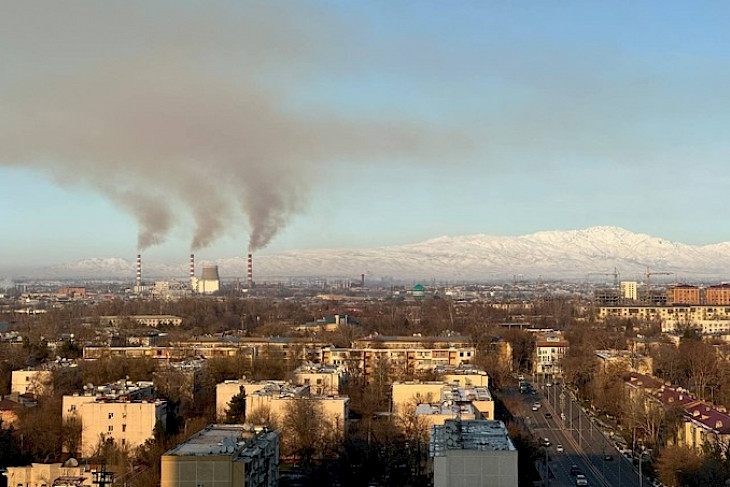The Tashkent Thermal Power Plant (TashGRES), located in the Salar Kibray district, has been obligated to pay compensation for violations of Uzbekistan's environmental legislation, including emissions of pollutants, announced the Ministry of Ecology, Environmental Protection, and Climate Change of Uzbekistan, Gazeta.uz reports.
According to the Ministry of Ecology, an inspection was conducted at the enterprise from January 23 to 31, which uses gas as its main fuel for heat generation but occasionally burns mazut as a reserve fuel. Ecologists identified the absence of an emissions purification system.
As a result of the inspection, a fine of 1.023 billion sum ($83.3 thousand) was imposed on the Thermal Power Plant, including 759 million sum for harmful emissions into the atmosphere due to mazut combustion and 264 million sum for the spillage of oil products on the nearby territory.
Ecologists have issued mandatory instructions to rectify the deficiencies, consisting of 16 points.
The collected documents are planned to be submitted to court to provide a legal assessment of the actions of the power plant officials for the identified shortcomings, as stated by the ministry.
It is known that on December 14, smoke covered Tashkent from the chimneys of the Tashkent Thermal Power Plant. Competent specialists note that such air pollution is associated with the burning of mazut by heat-generating enterprises.
In November 2023, Uzbekistan's Minister of Energy, Jurabek Mirzamakhmudov, addressing questions about covering a potential deficit in electricity and gas, stated that a significant reserve of mazut had been formed. Specifically, while 1800-2600 tons of mazut were burned for electricity production in November 2022, by the end of November 2023, 100-200 tons were burned daily, allowing for a reserve of 340 thousand tons of mazut (compared to 46 thousand tons previously).
"During abnormal cold spells, there is an opportunity to increase the use of mazut to 10 thousand tons per day. By burning 10 thousand tons of mazut, we will cover the deficit of 10 million kWh of electricity per day," he said at that time.
Earlier, the Ministry of Ecology of Uzbekistan cited the use of mazut by heat plants as additional fuel to provide warmth to the population as one of the reasons for air pollution. If in 2018 the Tashkent Thermal Power Plant used 118.9 thousand tons of mazut, in 2023 this figure exceeded 270 thousand tons (an increase of 2.3 times). The use of mazut at the Angren Thermal Power Plant increased almost twofold over the last five years.
The ministry also shared information about urgent measures to improve air quality in Tashkent. These include the mass installation of sensors, the ban on A-80 gasoline, coal, and mazut at thermal power plants, the installation of dust and gas cleaning devices in greenhouses and enterprises, a moratorium on the construction of cement plants, and more. Last week, the President of Uzbekistan instructed to implement most of these measures.
CentralasianLIGHT.org
February 2, 2024

